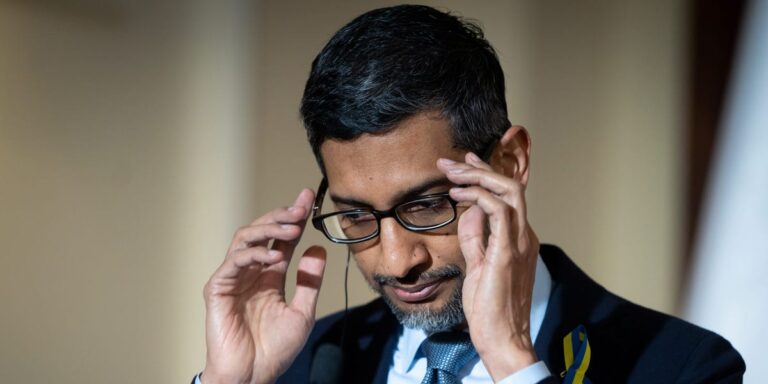For years, Google was the largest business customer of One Medical, the primary care provider that Amazon acquired for $3.9 billion.
But when Amazon closed the One Medical deal last year, Google decided to end its agreement with the healthcare company, according to internal documents obtained by Business Insider.
“We are also disappointed that our largest enterprise client, Google, has decided to terminate its agreement with ONEM in favor of another provider,” Amazon’s document said.
Under the company agreement, Google offers its employees free or discounted One Medical memberships. Google also operates One Medical care centers in some Google offices. The agreement is set to expire at the end of this year.
Google is a major customer
Losing Google as an enterprise client to One Medical is a setback for Amazon’s healthcare efforts.
Google was an early backer of One Medical and has been its largest business customer for years. Until 2020, One Medical disclosed that Google accounted for 10% of its net income. In 2021, that number dropped below 10%, and One Medical stopped sharing financial reports publicly after Amazon acquired it.
Since buying One Medical, Amazon has embarked on a number of cost-cutting measures, including layoffs and office closures, as BI previously reported. Amazon is also shutting down its Amazon Care telehealth service in 2022 and discontinuing its Halo fitness tracker last year.
To grow its customer base, Amazon launched a new One Medical discount option for Prime members late last year.
Google employees must pay for One Medical
A Google spokesperson confirmed to BI that its existing relationship with One Medical will change after 2024 but said the decision had nothing to do with Amazon’s new ownership of the healthcare provider.
The One Medical center on Google’s campus has transitioned to Premise Health to provide more services such as pharmacy, gynecology and coordinated care on site, the spokesperson added.
One Medical will remain an in-network provider for Google employees. This means that Google health insurance will be accepted at One Medical offices, although Google employees will have to pay for their memberships themselves in the future.
In an email to BI, an Amazon spokesperson said Google employees and their dependents will continue to have One Medical memberships “sponsored” by their employers through the end of 2024.
“One Medical is proud of the care we provide to Google employees in a small number of locations on the Google campus, virtually, and in our hundreds of community offices near where many Google employees live, work, and shop,” the spokesperson said in a statement.
More direct involvement
For this year, One Medical is refocusing its sales efforts on “mid-market clients,” while working to build a better strategy for larger corporate customers, the internal document said.
To increase engagement with large enterprise customers, One Medical plans to increase direct communications to employees with more health benefits data, the document said.
The company wants to contractually require enterprise customers to provide employee contact information to enable direct communication, which typically results in higher usage, he added. The company also intends to collect member-reported health data during enrollment and regularly engage employees through push notifications from the One Medical app, according to the document.
“By 2024, using targeted campaigns and incentives, we aim to increase the percentage of corporate members who have had an annual health visit in the past year from 16% to 28% (totaling 160,000 members), an increase of 75%,” the document said.
In a statement to BI, an Amazon spokesperson said One Medical continues to experience “very strong growth,” while Amazon’s broader healthcare business is “growing rapidly.”
One Medical partners with approximately 10,000 businesses across the US to provide comprehensive primary care services to their employees, and “that number continues to grow,” the spokesperson added.
Do you work at Amazon? Have any tips?
Contact the reporter, Eugene Kim, via the encrypted messaging app Signal or Telegram (+1-650-942-3061) or email (ekim@businessinsider.com). Reach out using non-work devices. See Business Insider’s source guide for more tips on sharing information safely.


